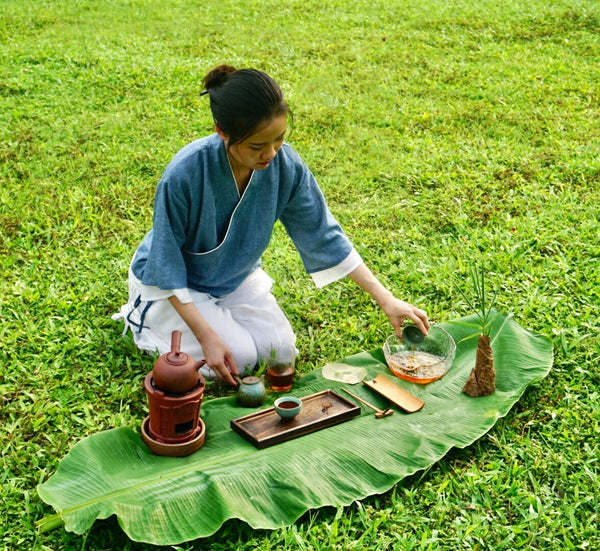Whata's a "well brewed" tea?
First of all, we need to confirm what it means to brew a cup of tea "well". The three basic indicators of "well brewed" should be that the tea tastes good, the quality characteristics of the tea are expressed, and the good flavor can be maintained for a relatively long time.

Key elemets to brew a good Chinese tea
To make a good tea, you must first understand the "three elements" of tea brewing - the amount of tea, the temperature of the brewing water, and the steeping time.
People who are new to tea brewing often worry about how much tea to put in the pot. If you put too little tea, the tea soup will be bland and tasteless, and if you put too much tea, the tea soup will be bitter and affect the taste. Tea brewing experts often use the term "tea-water ratio" to describe the amount of tea used, which is the ratio of tea to water (actually refers to the volume of the tea set).
-
tea to water ratio: For Chinese fine green tea, yellow tea, scented tea, you can choose a ratio of 1:50, that is, 1 gram of tea leaves with 50 ml of water. If the volume of the teapot or covered cup (gaiwan) is 100 ml, put 2 grams of tea leaves, and the brewed tea soup will be moderate in strength. Chinese Oolong tea and black tea often pursue a strong taste, and a 1:20 tea-to-water ratio is often used. Chinese white tea and black tea will use a ratio of 1:30. If you use the daily steeping method to make tea, the ratio of tea to water is usually between 1:50 and 1:100. For boiling tea, because of the continuous high temperature, you need to put less tea leaves, and the appropriate ratio is 1:150-1:200.

-
water temperature: High temperature water refers to water at 90℃-100℃(194℉-212℉); medium temperature water refers to water at 80℃~90℃ (176℉-194℉); low temperature water refers to water below 80℃ (176℉). There is also room temperature water, ice water, etc. The general rule is that when the water temperature is high, the tea fragrance is obvious, the tea soup tastes strong and tends to be bitter; when the water temperature is low, the tea fragrance is not strong, the tea soup tastes soft but tends to be bland and watery.
 Most Chinese fine green teas are tender and have high caffeine content, so they tend to taste bitter when brewed. It is better to brew them with medium temperature water. Black tea, white tea, scented tea and dark tea taste good when brewed with medium-temperature water, but oolong tea, raw Pu-erh tea and some old teas are best brewed with high-temperature water to fully display their unique flavors. People who are sensitive to bitterness and caffeine can try to brew tea with warm water or even ice water, which will lose some fragrance, but the tea soup is almost not bitter.
Most Chinese fine green teas are tender and have high caffeine content, so they tend to taste bitter when brewed. It is better to brew them with medium temperature water. Black tea, white tea, scented tea and dark tea taste good when brewed with medium-temperature water, but oolong tea, raw Pu-erh tea and some old teas are best brewed with high-temperature water to fully display their unique flavors. People who are sensitive to bitterness and caffeine can try to brew tea with warm water or even ice water, which will lose some fragrance, but the tea soup is almost not bitter. 
-
steeping time: The flavor of green tea, oolong tea and raw Puer tea is easily affected by the steeping time, so when practicing brewing these teas, you must first learn to count the seconds in your mind. Sometimes a difference of four or five seconds can make a big difference in the taste of the tea soup. White tea, black tea and dark tea are more tolerant of the steeping time. There is not much difference between steeping for 40 seconds and 60 seconds. In short, professional tea brewing calculates the brewing time in "seconds".
















